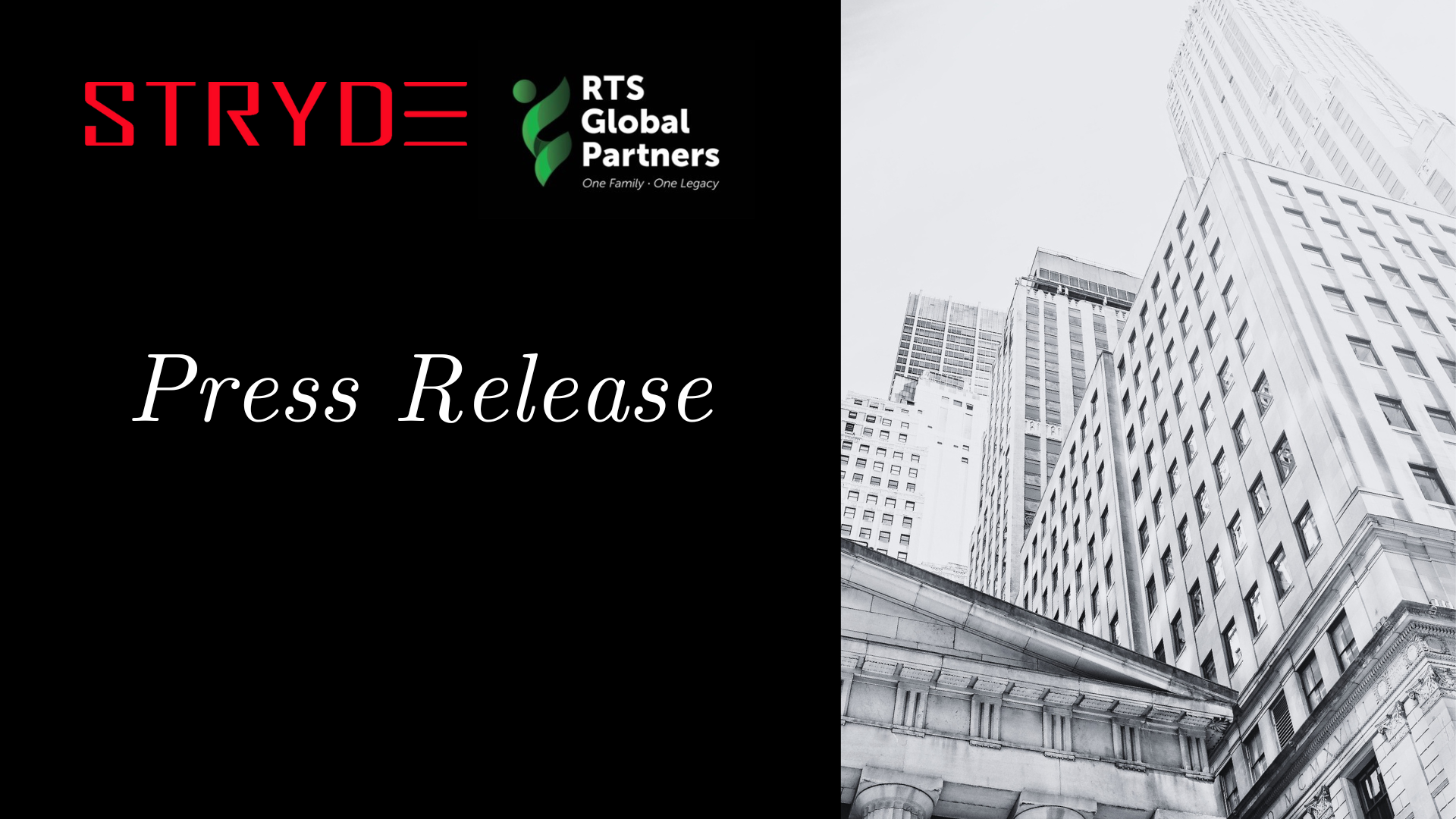 (4).png.jpg)
2024-09-18
It is common for tax professionals to weigh their options when considering where to pursue and advance a career in tax. Many choose a path within one of the Big 4, while others veer toward small-medium-sized firms or more corporate opportunities. With the growth of the family office market globally, there is another, often overlooked (or misunderstood) option for qualified accountants.
In this article, we compare the potential differences in a career within the Big 4 versus a family office. The Big 4 and single family offices offer distinct advantages and challenges, and choosing between these two paths depends on individual career goals, work preferences, and long-term aspirations. If you're curious about how these two options stack up against each other, here’s a brief overview of the advantages and disadvantages of each.
Big 4 Accounting Firms
There is no question that the Big 4 (Deloitte, EY, KPMG, and PwC) are the most prestigious accounting firms in the world, renowned for their global presence, extensive resources, and diverse client base. These firms attract superior talent, especially young and aspiring tax professionals embarking on their first role after graduation. But as one's career advances within such organizations, it is important to consider the benefits and drawbacks of this career path to ensure it is the best long-term option for a fulfilling career.
ADVANTAGES
1) Broad Exposure, Specialist Experience
Diverse Clientele: The Big 4 firms work with a wide range of clients from different industries and sizes including Fortune 500 multinational enterprises, multi-billion-dollar private firms, UHNWIs, and large family offices. As such, they can offer exposure to diverse clients with a range of complex tax needs.
High-Profile Cases: Employees may have the chance to engage in prominent and intricate cases, offering a stimulating intellectual experience and valuable learning opportunities. The impact of these firms often leads them to advise governments on shaping tax policy, sometimes seconding staff to draft laws and advocate for policy changes.
Broad Range of Specialisms: Each of these firms is large enough to offer the full spectrum of indirect and direct tax planning and compliance specialisms. They typically organize their consultants into specialist areas, such as M&A, Tax Reporting & Strategy, Wealth Management Tax Services, International Tax and State/Local Tax. This focus allows individuals to develop a deeper understanding of a subject matter and become an expert in their field.
2) Structured Career Path
Clear Advancement: Due to the size and sophistication of the Big 4 firms, career advancement is a frequent occurrence. This allows young professionals to climb the ranks rather quickly, often beginning within the first two years of their careers. This type of advancement structure can keep professionals motivated and on target to meet development goals, however; this progression can slow down as someone moves to Senior Manager level and reaching Partner status can take 10-15 years.
Professional Development: Big 4 firms invest heavily in the development of their employees. These organizations have the budget and resources to dedicate to robust training programs at all levels and will also provide financial support for continuing education and accreditations.
Career Prospects: Big 4 firms are well respected by finance and tax professionals in other organizations. Having Big 4 experience on a resume can open the door for future opportunities, whether one is early in their career or has been promoted through the ranks.
3) Networking Opportunities
Global Network: Networking and employee interaction is a core cultural component at the Big 4 firms. This wide-ranging network connects employees with professionals and clients across the globe. This can be an asset for future career development and advancement, especially for young professionals, as one can network with peers and experts in their field.
4) Diversity, Equity and Inclusion
Initiatives: Each of the Big 4 firms has made tremendous strides towards creating a diverse, equitable and inclusive workforce and culture. DEI has been integrated as a key business strategy at each firm. In fact, many of these organizations have been recognized for their successful DEI initiatives, such as creating employee resource groups and inclusion networks and achieving diversity among teams.
Programmatic Approach: The Big 4 firms have established leadership development initiatives tailored for minority groups as well. An example of this is Deloitte’s Emerging Leaders Development Program (ELDP), which encompasses skill enhancement, coaching, self-evaluation, and mentorship.
5) Competitive Compensation and Benefits
Competitive Compensation Packages: The Big 4 firms are known for providing attractive salaries, bonuses, and extensive benefits. They implement structured pay bands that are clearly defined according to job levels, allowing employees to thrive in a merit-based environment and gain insight into their potential future earnings. Additionally, there is consistency in compensation across the four firms, making it straightforward to assess whether an individual is receiving a competitive salary.
Performance-Based Compensation: Achieving Partner status marks a significant shift from being a conventional employee to having a bit more “skin in the game”. The pathway to partnership is a multi-step process but typically involves a financial investment. In exchange, partners earn profit-sharing compensation, which comes with increased responsibilities and the obligation to achieve specific revenue targets. This role is not suited for everyone and demands a strong business acumen and leadership skills.
CHALLENGES
1) High Pressure and Workload
Long Hours: The long hours associated with working at a Big 4 firm are well known, especially during the “busy” season. It is common for employees to work 75+ hour weeks and weekends when tax deadlines are approaching. At Stryde, we frequently talk to candidates that experience burnout due to chronic stress but would prefer not to share it with their employers.
Work-Life Balance: Achieving a healthy work-life balance can be challenging due to the high workload and demanding environment. For many, working at a Big 4 can mean a lot of travel and overtime during peak season. Consistent travel means personal sacrifice that can become unmanageable, especially if it becomes too frequent. Some firms also black out certain vacation weeks during busy season, which can be problematic to those needing time off work for personal or family matters.
2) Large Corporate Culture
Lack of Meaning: The size of teams and businesses they support might mean less opportunity to connect with the clients they are serving. It’s common for people to feel they are ‘just a number’ in a large corporation. A minor position in a substantial project can create challenges in expressing one's opinions, leading to doubts about the impact they are making.
Hierarchical Structure: The corporate environment can be rigid with a hierarchical structure that might limit individual input and flexibility. While there is a clear career ladder to climb, it can take a long time for many to achieve a promotion. A common complaint is slower decision-making and difficulty in getting close to the interesting, strategic work.
Barriers to Becoming a Partner: Although the Big 4 provides a well-defined career path, it is crucial for individuals to recognize the challenges associated with attaining partner status. A limited number of individuals possess both the potential and the opportunity to reach this level, with success rates being very low. To succeed, one must have a suitable mentor, a compelling business case to demonstrate necessity and a track record of revenue growth.
Single Family Office
So, what is a Single Family Office (SFO) anyway? A SFO at its core manages the financial affairs, investments, and philanthropic engagements of a wealthy family, with many focusing on preserving and growing their wealth across generations. SFOs are similar in their mission but, as with many private organizations, come in a variety of shapes, sizes, and levels of sophistication.
Tax is a highly sought-after area of expertise across family offices. This is due to the desire to ensure the family's financial affairs are structured in the most tax-efficient manner possible. Family offices typically engage in various investment structures resulting in quite complex tax needs, often involving multiple generations. Because of the unique nature of working directly for a family, a career in family office offers its own set of benefits and challenges.
ADVANTAGES
1) Focused Expertise
Specialization: Employment within a family office allows for a more focused expertise in tax matters tailored to the family's distinct financial investments and circumstances. Family offices often collaborate with external firms, which enables tax professionals to benefit from the specialized insights provided by a Big 4 firm indirectly.
Holistic Approach: Family offices oversee significant wealth and intricate financial portfolios, presenting opportunities for advanced tax planning techniques, such as estate planning, investment structuring, and tax-efficient charitable giving. Although one individual may handle tax responsibilities related to investments, they need to comprehend the connections between these investments and the family's estate plans and long-term wealth objectives.
2) Culture
Collegiate: Family offices typically exhibit a more collegiate culture, characterized by a flatter hierarchy. This environment fosters greater collaboration, encourages the exchange of ideas, and promotes innovative problem-solving among teams, while placing less emphasis on competition and individual advancement.
Gender Diverse: The family office sector has traditionally been male-dominated; however, this trend is evolving. Various studies indicate that around one-third of senior positions are now occupied by women, and there is an increasing presence of female Principals.
3) Cutting Edge Work
Varied Exposure: Given the unique nature of family offices with a diversified portfolio, investments in multiple asset classes, and varying stakes in private/public companies crossing multiple jurisdictions, there is a lot of opportunity for research and strategic planning in tax. This of course varies hugely across family offices.
Great Learning Environment: Family offices hire the best and the brightest in their fields, many highly educated from the most prestigious colleges and universities. This fosters an environment of learning from peers who have a wealth of knowledge to share in their areas of expertise.
4) Work-Life Balance
More Predictable Hours: Family offices generally offer a more stable work environment with fewer of the extreme peaks and troughs seen in public accounting/Big 4 firms.
Family-Centric Culture: The work environment is often more personal and less bureaucratic, potentially offering a better work-life balance. There is unlikely to be excessive travel and life away from home.
5) Direct Impact
Close Relationship: Tax professionals regularly have direct access to the family, allowing for a more immediate and visible impact on their decisions. Building relationships with the individuals with whom their work directly benefits provides a strong sense of meaning and loyalty.
Generational Focus: There’s an opportunity to engage in long-term strategic planning, which can be highly rewarding for those interested in wealth preservation and legacy planning. Senior Tax professionals within family offices sometimes get involved in training the new generation. Family office tax professionals engage in creative tax solutions, structuring investments in the most tax-efficient manner for the benefit of future generations.
6) Attractive Compensation and Benefits
Compensation for tax professionals at family offices can vary widely depending on several factors, including the size and complexity of the family office, the location, and the experience level of the tax professional. There is the potential for upside on the variable/discretionary elements of bonus/long-term incentive plans. See below for more of a breakdown:
Base Salary: Tax professionals at family offices typically receive competitive base salaries, which can be higher than those in Big 4 roles, especially if the family office is at the large level ($1Bn - $100Bn). Based on Stryde Search’s experience placing tax candidates, salaries in the USA range from $90k at the junior level to $250k at the top end for Tax Manager/Senior Tax Manager. For a Head of Tax up to Chief Tax Officer (of which there are very few in the country), salaries are usually upwards of $250k.
Bonuses and Incentives: Many family offices offer performance-based bonuses or incentives. These bonuses can be substantial, particularly if the family office is profitable or has had a successful year or liquidity event. Bonuses might be tied to individual performance, overall office performance, or both. Either way, there is usually a discretionary element to bonuses.
Equity or Profit Sharing: In some cases, especially in larger or more established family offices, tax professionals might receive equity stakes or profit-sharing arrangements. This can be a significant component of total compensation, aligning the professional's interests with the success of the family office.
Benefits and Perks: Compensation packages often include a range of benefits such as employer-paid health insurance premiums, retirement plans, and additional perks like paid time off, flexible working arrangements, or educational allowances. Family offices may also offer unique benefits, like access to personal financial planning resources.
7) Job Security
Assuming an individual performs well in their position and aligns with the family culturally, family offices provide exceptional job security and long-term career stability. In contrast to the Big 4 and other corporate environments, these offices are built with more of a focus on personal connection, trust, and loyalty. This is reflected in the levels of tenure, which average between 10-15 years at senior level.
CHALLENGES
1) Finding the right opportunity
Discretion: Identifying the appropriate opportunity can be challenging as many family offices prefer to operate discreetly. This makes it difficult to move from one family office to another and complicates the process of charting a career path.
Right Place, Right Time: The number of family office roles available at a given time are fewer than those at the Big 4 because of the difference in the size of the industries. Searching for the right role in a family office could take months to years depending on what is available.
2) Niche Experience
Limited Exposure: The focus on a single family’s affairs might limit exposure to diverse tax issues or they might even outsource some of the technical work. The diversity of tax exposure directly depends on the engagements of the family. Larger family offices may allow working across a wider variety of complex tax issues. Others looking to deploy capital may provide opportunities for due diligence and tax research on potential transactions.
3) Fewer Networking Opportunities
Limited Peer Group: Some of the bigger family offices may have larger tax teams and foster opportunities for networking and collaboration, but the opportunity will not be close to what a Big 4 firm offers.
The Need to be Proactive: While the chances to create a wide-ranging professional network might be less in a family office setting compared to a Big 4 firm, these offices often cultivate relationships with other family offices to exchange ideas and gain insights. Additionally, there are numerous networking groups and conferences tailored specifically for family offices that help foster professional connections.
4) Potential for Less Structured Growth
Fewer Formal Training Programs: Single-family offices might not have the same level of formal training and development resources as Big 4 firms. That said, families respect loyalty and want to maintain best-in-class talent so they will support and encourage professional studies and further qualifications.
Career Path Ambiguity: Because family office tax teams are only a fraction of those at the Big 4 firms, the career trajectory and advancement timeline will not be as clearly defined and quickly achieved. While titles may not change as frequently as in public accounting, family offices understand the value of tax professionals and generally compensate generously to ensure the team remains motivated and feels valued.
5) Smaller Team Dynamics
Broader Role: Professionals in a family office might have to wear many hats, which can be both a benefit and a challenge depending on personal preferences and skills. This gives the potential for a wider breadth of experience working on a variety of complex tax strategies and solutions. It could also allow a person to step into a CFO or COO role over time. More on the specifics of those roles in another article!
CONCLUSION
The differences in pursuing a tax career in the Big 4 versus a family office are many. For those evaluating which path to choose, the first step should be to consider what is most valued both from a professional and personal standpoint. If a fast-paced, high-exposure opportunity with extensive resources and a clear career path is desired, then the Big 4 might be a good fit. On the other hand, if a more specialized, stable, and personal work environment with opportunities for in-depth strategic planning is preferred, then a SFO could be a compelling option and offer a rewarding career.
This article was researched and written by Katherine Travell, Partner, Stryde Search and Lisa Slagel, Senior Consultant, Styde Search.
If you are interested in considering a career pivot towards family office, or if you are looking for your next move in family office, contact a member of the Stryde Search team.
In the UK/Europe, contact Karen Berry via kb@strydesearch.com
In the USA, contact Lisa Slagel via ls@strydesearch.com

.jpg.jpg)

.png.jpg)
.png.jpg)
.png.jpg)
.png.jpg)
 (2).png.jpg)
.png.jpg)
 (1).png.jpg)
.png.jpg)

 (3).png.jpg)
 (1).png.jpg)

 (1920 x 1080 px).png.jpg)